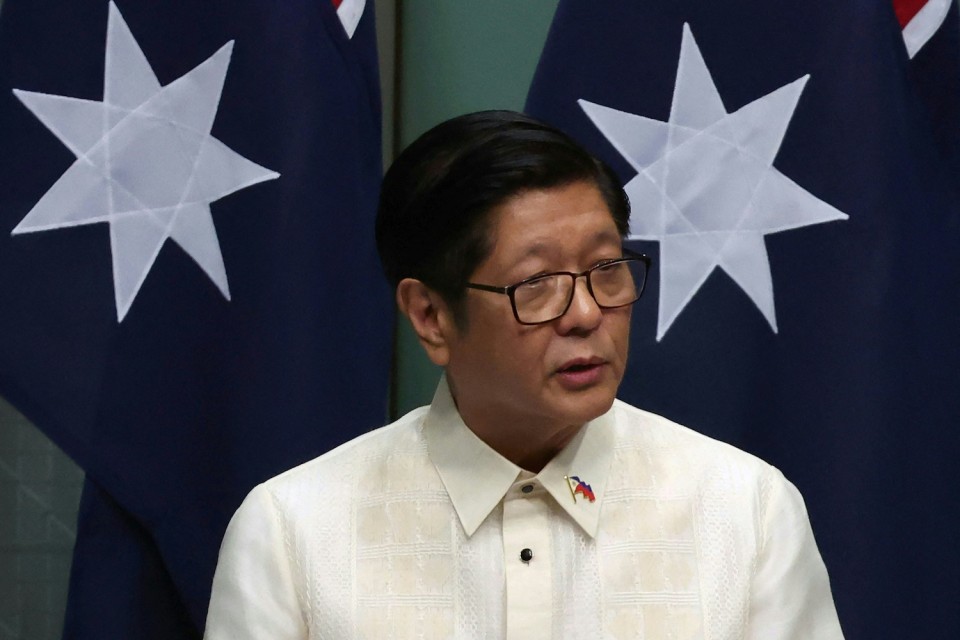
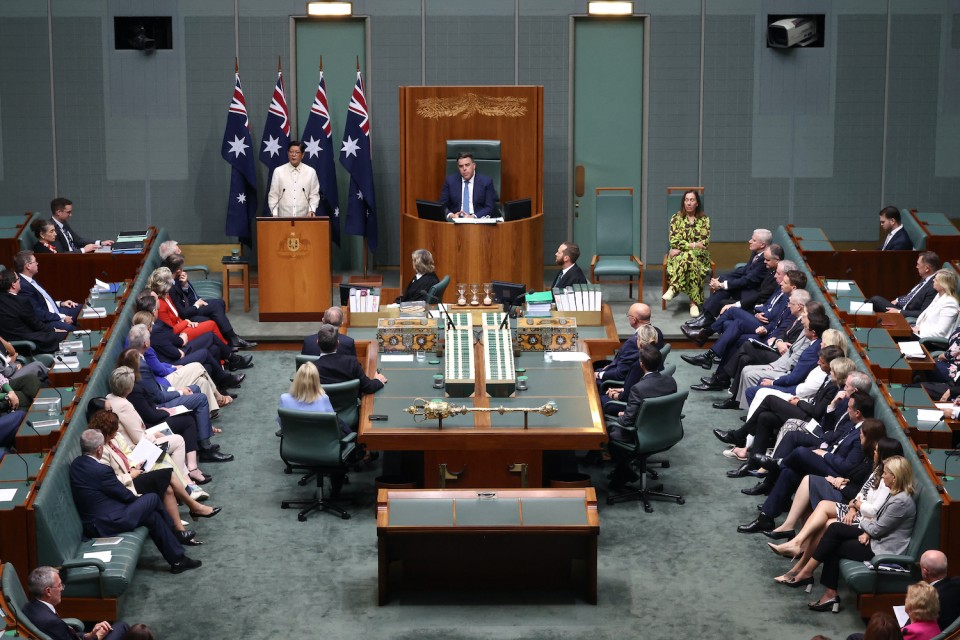
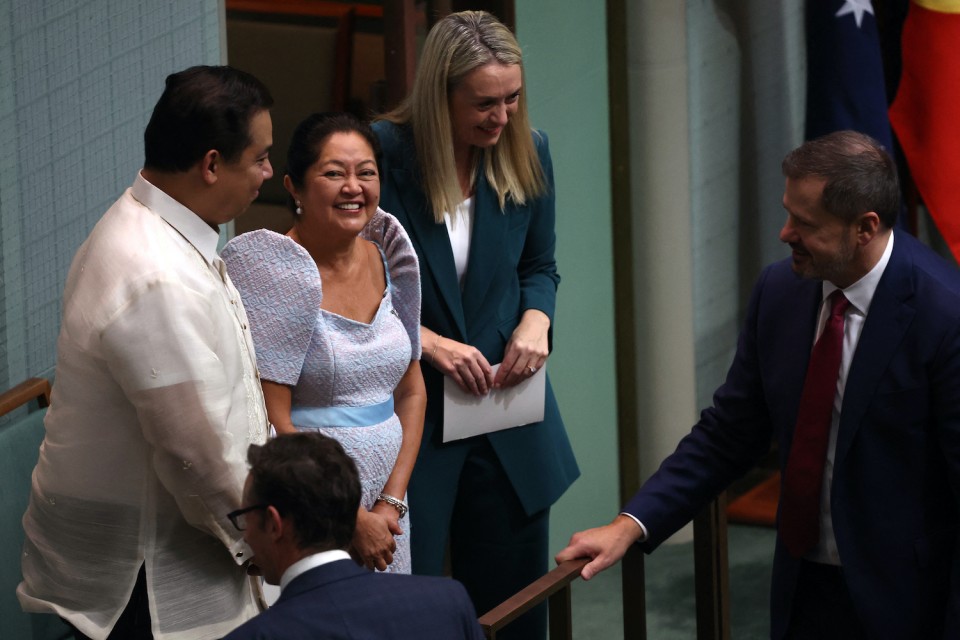
CANBERRA, Feb 29, 2024 (AFP) – Philippine President Ferdinand Marcos told Australia’s parliament his country was on the “frontline” of a battle for regional peace Thursday, pledging resolve as he sought support in maritime disputes with China.
With Beijing’s warships loitering in waters off his country’s coast, Marcos told Australian lawmakers that “the Philippines now finds itself on the frontline against actions that undermine regional peace, erode regional stability, and threaten regional success”.
He vowed to remain firm in defending his country’s sovereignty, despite “formidable” challenges.
“I will not allow any attempt by any foreign power to take even one square inch of our sovereign territory,” Marcos said to loud applause.
“The challenges that we face may be formidable, but equally formidable is our resolve. We will not yield.”
Philippines authorities this week reported detecting Chinese navy vessels around the Scarborough Shoal — an area seized by Beijing in 2012.
China has claimed the shoal and large swathes of the South China Sea as its own, ignoring regional objections and an international tribunal ruling that the claims have no legal basis.
The South China Sea is strategically vital for several countries — including China — providing a key route for the import and export of essential fuel, food and other goods.
Beijing has long deployed coast guard and other vessels around the Scarborough Shoal to prevent Philippine access.
But Marcos painted the deployment of warships as a new and “worrisome” escalation.
China has rapidly grown its naval forces in recent years, and snatched vast tracts of maritime territory, hoping to project its military and political power well beyond the country’s shores.
“The protection of the South China Sea as a critical global artery is crucial to the preservation of regional peace. And I dare say of global peace,” Marcos said.
Marcos’ Australian counterpart Anthony Albanese hailed the Philippines as a “strategic partner” on Thursday.
Albanese said the two countries signed a deal on “enhanced maritime cooperation” and vowed to “collaborate even more closely to promote our shared vision for the region”.
– Hard sell –
Marcos may be pushing at an open door when it comes to Australia’s support, but he is likely to face a tougher task in garnering full-throated support from his Southeast Asian neighbours.
Early next week, Australia and the ASEAN bloc of Southeast Asian nations will hold a summit in Melbourne.
Although Beijing’s aggressive stance in the South China Sea is tipped to dominate discussions, many countries around the table — notably Laos and Cambodia — have extremely close ties with China.
Many others are keen not to damage relations with Beijing, a major trading partner.
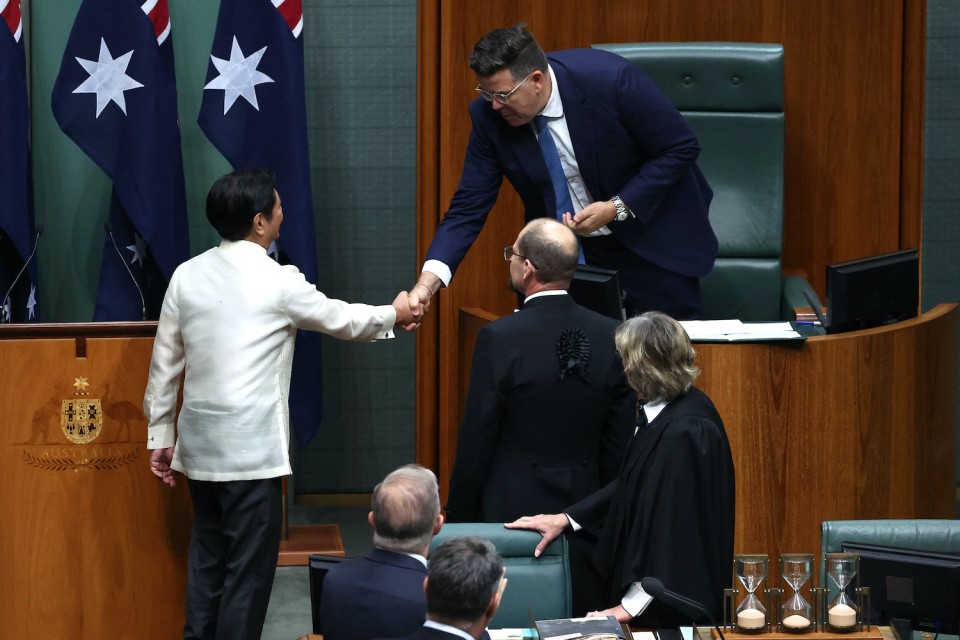
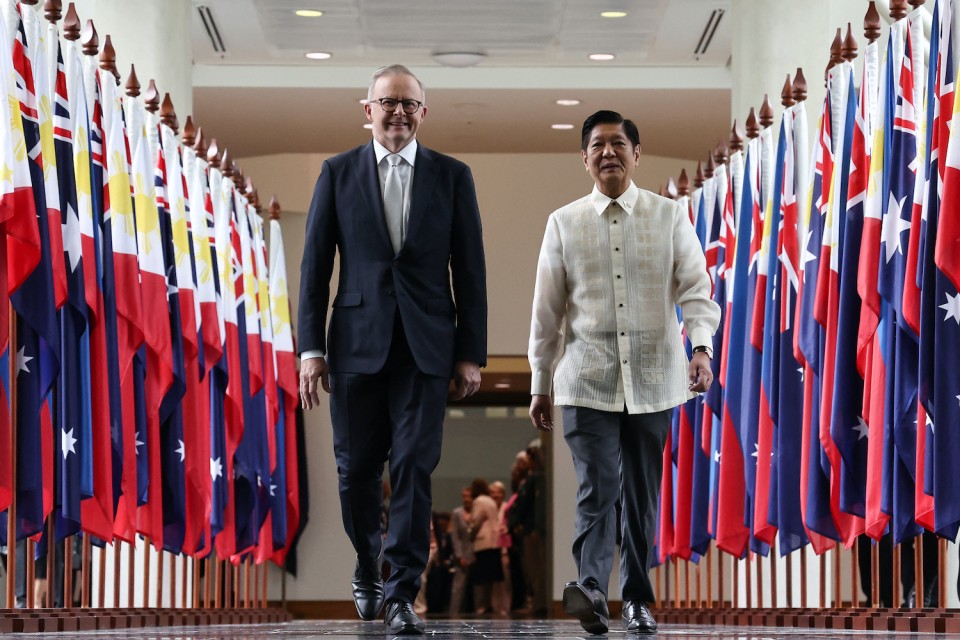
© Agence France-Presse







